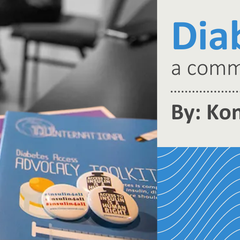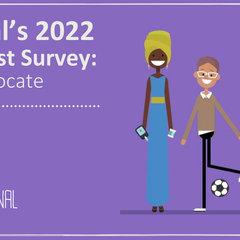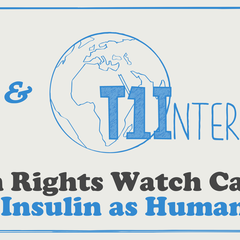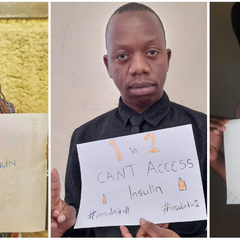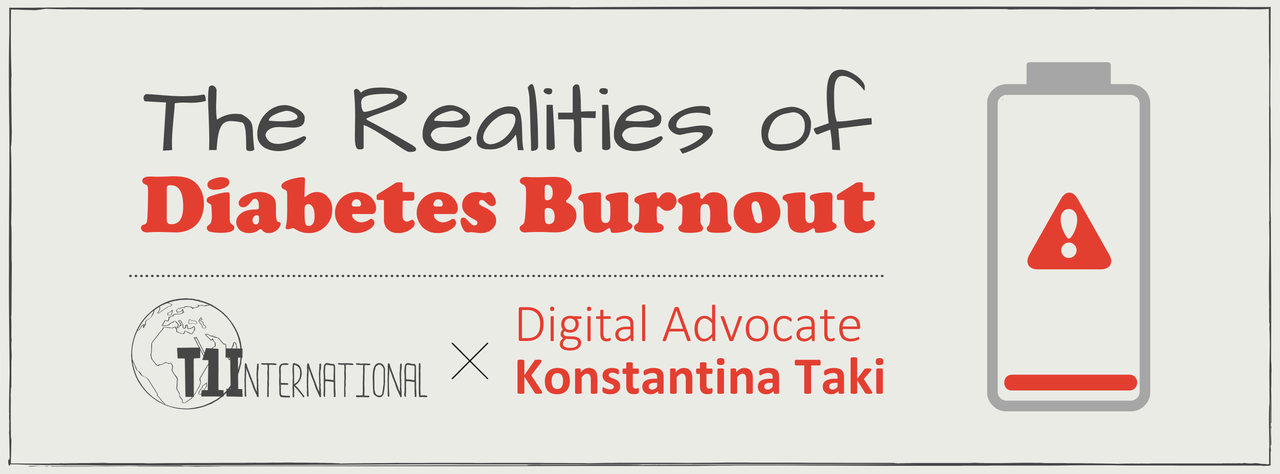
The Realities of Diabetes Burnout
2 Jun 2022, 7:42 p.m. in News & Statements by Konstantina Taki
By definition, burnout is the loss of strength or motivation, usually as a result of prolonged stress or frustration. This exhaustion can be physical, mental, or emotional in nature. People who experience burnout experience high levels of anxiety and stress and feel unable to complete basic tasks in their daily life. This feeling of exhaustion can be quite intense, and individuals experiencing burnout often seem distant, distracted, and indifferent. In order to recover properly, these individuals may need both time to rest and mental support.
Unfortunately, burnout is a very common phenomenon nowadays. In 2019, 'burnout' was recognized by the World Health Organisation (WHO) as an ‘occupational phenomenon’. In a recent survey, which polled more than 65,000 North American employees, 42% of women and 35% of men reported feeling burned out. This is a staggering figure which may mean millions, if not billions, of people across the globe are feeling prolonged periods of stress in their daily lives.

How is burnout related to diabetes?
Diabetes is a chronic condition, meaning it is an ongoing condition. As a medical condition, diabetes requires alertness, precise calculations, many daily decisions, and preparations for the future. The diagnosis of diabetes itself is a shocking incident that requires immediate adaptation to a new lifestyle in conjunction with several new rules and behaviors. Being constantly alert in order to balance blood sugar levels, people living with diabetes can easily feel overwhelmed. Another aspect of living with diabetes is the constant attention given the adequacy and supply of needed medical supplies. This includes insulin, test strips, glucose meters, and more that are all necessary to sustain life. Given the fact that one out of two people with diabetes worldwide cannot even access insulin, this feeling of insecurity is quite frequent and can easily lead to mental health issues. Even more, there is the possibility of several health complications as a result of diabetes, frequent blood test results, and the numerous doctor appointments are additional aspects of the disease that increase stress levels and can easily lead to diabetes burnout.
What can we do about diabetes burnout?
There are methods and strategies to deal with this phenomenon that may gradually decrease the impact of burnout in your daily life. First of all, it is very important to rid yourself of the feeling of guilt. Blood glucose levels are affected by numerous factors, including psychology, energy levels, fatigue, etc. Diabetes cannot always be under control. Even the pursuit of ‘perfect blood sugars’ and ‘Time In-Range’ percentages can itself lead to anxiety.
Every person has their own rhythm based on their own needs. Taking a step back to prioritize the different aspects of diabetes that seem to be out of control is important and useful. Since we are all different, each instance of diabetes burnout has its own unique root cause. Finding what has led to burnout is like a self diagnosis which often can be half of the cure. Burnout could be the result of a stressful doctor appointment or an upcoming blood test. It can even be a result of prolonged periods of high or low blood sugars.
Talking to people about your feelings can be extremely helpful as a means of managing burnout. Friends, family, and colleagues can help you build your own support system as a means to feel safe and secure. Mental health professionals, especially those who have expertise with chronic illnesses, can also provide guidance and methods of dealing with diabetes burnout. Also, it is important to build an honest and open relationship with your doctor. If you feel that your current therapy doesn’t fit your needs, you can always discuss it. If you cannot agree, finding a new doctor might be a good idea, if it’s possible in your situation.
Diabetes burnout is almost inevitable, but it is manageable. It can also be an opportunity, and a great chance to start finding balance, which can be difficult and demanding at times. When you listen and respect yourself and your needs, the healing process becomes easier.
T1International as an organization has worked to prioritize the mental health of its members and Advocates. Their support on managing diabetes and advocacy can be summarized to the 4S’s of self care: supplies, stress, sleep and support. That’s why I appreciate working and interacting with the community created by T1International. The feeling of this supporting community gives me hope, and makes me feel less lonely in my diabetes journey.
Introducing the 2022 Diabetes Burnout Survey
For too long, understanding the precise relationship between burnout and diabetes has been a mystery, and more data must be uncovered. Working with T1International, we are sharing a new survey on the impacts and implications of burnout for those with type 1 diabetes.
During the month of June, we’ll be collating the data in this survey and combing for insights and stories. Later this year, we’ll share the results of this survey with the public in the form of a follow up post, and highlight key findings.
Use this time to take and share our 2022 Diabetes Burnout Survey. As we gather responses and share with the community, we’ll work to share our findings with the community.




